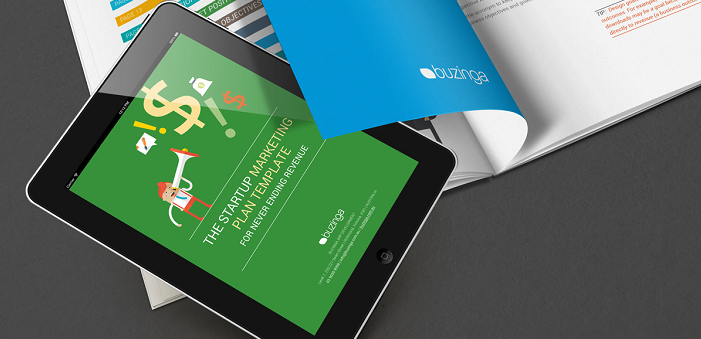7 Non-Obvious Marketing Lessons For Early-Stage App Startups
Ah, marketing. It’s a fickle friend.
Marketing is absolutely essential to your business’ success, but it’s not always obvious what your best marketing move is.
This isn’t another blog post telling you that you need to ‘understand the problem’ in order to craft compelling marketing messages.
I’m going to assume you already have a handle on these marketing concepts. If not, head over to The Beginner’s Guide To Mobile App Marketing before you read any further.
Instead, I want to talk about lesser-known marketing lessons that even the smartest early-stage app startups will learn from.
These common downfalls aren’t widely spoken about – They seem to only unearth themselves through trial and error.
Keep these in mind next time you find yourself stuck between a rock and a hard place. They just might have the answer!
-
Your marketing goal is different for each startup stage
The three phases of the startup lifecycle are:
- Validation
- Commercialisaiton
- Expansion
What most startups do wrong, is they forget that the aim of launching the first-version of an app is NOT to make a profit.
The aim is to gain feedback from real users that validates the need for the product in the first place. This is phase 1 – validation.
For that reason, you shouldn’t be spending $50K+ on marketing activities on your app’s first (soft) launch.
You spend money on marketing for your app’s HARD launch, after you know that bugs have been ironed out and that there is a real demand for the product.
This is when you’ve moved into the commercialisation phase of your startup, where the goal is to become profitable.
I went into detail about the startup lifecycle in this episode of The Buzinga Podcast, I’d recommend having a listen to save yourself a few thousand dollars!
2. Don’t listen to everyone
I find that this can be a hard one for first-time entrepreneurs to take on board.
You’re likely feeling out of your depth regarding certain aspects of building a business, so it’s tempting to tell everyone about your troubles and take all the free advice you can get.
If you’re after free marketing advice, don’t worry, you’ll be able to find it. EVERYONE has an opinion on what you should and shouldn’t do with YOUR business.
The hard part is knowing which advice to follow, because you’ll be on the receiving end of conflicting views being hurdled at you from all angles!
I advise to spend time devising a really thorough strategy. This will likely take a few months, and cost you a few thousand dollars.
Then, STICK TO THE STRATEGY.
It sounds counter-intuitive, but sometimes you but sometimes you need to stop taking advice, and start sticking to the strategy.
Most of the time success is not achieved by listening to everyone’s advice, but rather accomplishing the outcome of one strategy.
Then pivot. Then pivot. And then…pivot.
See also: 10 Successful App Pivots You Won’t Recognise From Their First Versions
3. Cut the marketing fat
It’s tempting to want to be everywhere online and get your app in front of as many eyeballs as possible.
But your dollar is much better spent targeting a concentrated group of people who are actually likely to become active users.
Never lose sight of who you are serving.
What does this look like in terms of marketing?
It means NOT using Instagram ads if your target audience are corporate executives. It means NOT blogging about your startup journey unless your target audience are also entrepreneurs.
In early stage marketing, you’re trying to keep your costs low and your audience hyper-targeted.
Only once you’re profitable should you experiment with different messages for different potential segments. This as part of your expansion strategy (phase 3 of the startup lifecycle).
Until then, keep your overheads low with messages that convert your core target user – these are your money makers!
4. Hustle the right way
Startups often underestimate the impact that building relationships will have on their business opportunities.
Attend Meetups, startup events, make contacts, and ask for introductions to people who you can see a value in getting to know.
See also: How To Choose Startup Networking Events That Aren’t A Complete Waste Of Time
This is a hugely under-emphasised acquisition strategy for getting your first customers.
Collecting business cards was the old-fashioned way of building your pre-launch database, before we had landing pages…
Bonus: You can also hustle online.
LinkedIn is a fantastic tool to connect with other business people, mentors, potential partners, and freelancers you may want to hire.
There are also tons of Facebook groups and online clubs for entrepreneurs you can get around.
These types of communities can be really valuable for getting a fast second opinion on who you should work with, your website design, how you’ve packaged your product/service…and so on!
5. Practice the right level of stealth
Personally, I don’t think you risk anything by sharing your idea.
“There is no shortage of ideas, there is a shortage of execution”
However, I understand why some people are more tight-lipped than others, especially in some tight-knit industries where everyone passes ideas along.
See also: How To Make Sure No One Steals Your App Idea
In the early days while you’re building your product, you may want to wait until you feel like you have a head start on potential copy cats.
If this is you, listen up.
Because you definitely don’t want to be that person at events who halts conversations by saying “I’m in stealth mode, can’t tell you anything.”
At the very least, you should be prepared to disclose:
- Your target audience
- Your industry
- The gap in the market (or the customer problem) that you’re going to be plugging
This could sound like: “We’re working on creating a digital solution for PAs and EAs to easily manage the conflicting appointments of multiple team members.”
Not so bad, was it?
In that sentence you haven’t revealed any IP.
You haven’t even said what your solution is, let alone gone into detail about the key features/functions of your app.
What you have revealed is a level of information that will let you cash in on opportunities.
When you give away nothing, you also give away the chance to receive hugely valuable resources like feedback from:
- Key People of Influence
- Investors who regularly fund ideas in your niche, and
- Seasoned entrepreneurs who can warn you about potential flaws in your business model.
You’ll also struggle to find mentors, which are invaluable in fast tracking your startup success.
See also: Ep 14: Why You Absolutely Need A Mentor
6. Focus on product. Marketing is secondary.
This is where all the greats spend their time: Steve Jobs, Elon Musk, Mark Zuckerberg…product!
That’s right, your product is more important than your marketing, especially in the early stages of the startup lifecycle.
Your aim is to get just enough people through the front door to validate if this product is even WORTH spending money marketing!
To do this, you need to be spending the majority of your time and money in the product itself.
This means not skimping on things like:
- UX
- Logos and design collateral
- Performance testing
- Ongoing maintenance and updates
You’re highly unlikely to make any ROI on your marketing immediately.
Think of the goal of marketing less as ‘getting money back for reinvesting’ and more as ‘investing money in order to learn from it’.
This brings me to my next lesson…
7. Collect more data than you think you’ll need
We’re in a beautiful (some would say creepy) age right now. We can track pretty much every action customers are taking in your app, and what interactions people are having with your brand online.
This is enormously valuable data that a lot of startups don’t bother collecting.
It’ll show you where your marketing budget is best spent, and uncover places where it can be tightened up.
Yes, data can be overwhelming to sift through (a lot of it is just ‘nice to have’ and doesn’t offer any real value).
The secret is to go into it with questions and goals – you’ll find the gold among the dirt.
See also: 4 Steps To Using App Data ‘The Uber Way‘
Marketing doesn’t have to be rocket science for early stage app startups.
It’s all about identifying the goal of marketing activities, and keeping your ear to the ground so you can jump on opportunities fast.
Ready to put together a marketing plan that will do just this? Don’t miss our customisable marketing plan template below…
Latest posts by Logan Merrick (see all)
- Ep 18: Collective Campus’ CEO on Intrapreneurship and Corporate Innovation - December 20, 2016
- 50 User Engagement Strategies For Planning Memorable Mobile Experiences - December 19, 2016
- Latest Data: App Monetisation Trends And Drivers 2015-2020 - November 25, 2016




